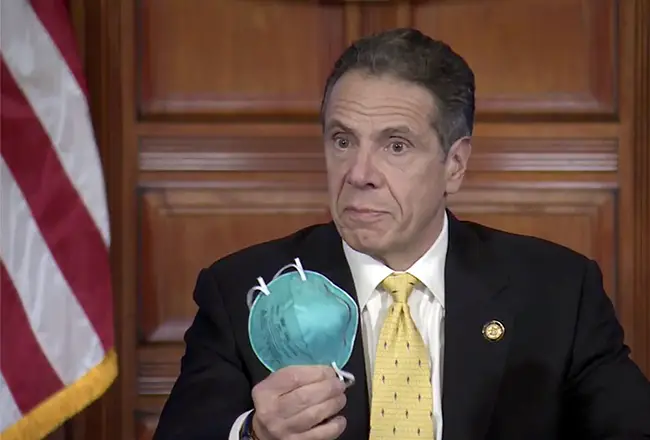The hospitality and tourism sectors are taking the expected beating from the COVID-19 pandemic.
Within the county, the Hyatt Regency Greenwich has closed temporarily, while the Crowne Plaza Danbury informed the Connecticut Department of Labor (DOL) that it is temporarily furloughing 56 workers through May 18.
Hilton has temporarily shuttered the 484-room Stamford Hilton and the 35-room Madison Beach Hotel. The 120-room Hilton Garden Inn Milford has closed permanently, according to paperwork filed with the DOL, at a cost of 49 jobs.
 “Hilton has been around 100 years ”” we”™ve never closed a hotel that wasn”™t going to be demolished for rebuilding,” Hilton CEO Christopher Nassetta told President Donald Trump during a March 17 meeting at the White House. “I”™ve been doing this for 35 years. Never seen anything like it. The bulk of our hotels in the major cities are closing as we speak.”
“Hilton has been around 100 years ”” we”™ve never closed a hotel that wasn”™t going to be demolished for rebuilding,” Hilton CEO Christopher Nassetta told President Donald Trump during a March 17 meeting at the White House. “I”™ve been doing this for 35 years. Never seen anything like it. The bulk of our hotels in the major cities are closing as we speak.”
Nassetta said the company expects hotel occupancy rates in major U.S. cities were “running in the single digits,” and that occupancy rates could drop to 10% globally as nations continue to implement mandates preventing large groups from gathering and discouraging travel.
Marriott International, whose brands include the Sheraton, W and Ritz-Carlton, reported on March 19 that North American and European occupancy rates were running below 25%, compared with about 70% a year ago. The company said it could put tens of thousands of employees on furlough as a result: “We are adjusting global operations accordingly, which has meant either reduction in hours or a temporary leave for many of our associates at our properties.”
According to the American Hotel & Lodging Association (AHLA), which says there are approximately 55,900 properties nationwide that contribute $660 billion to U.S. GDP, some 4 million jobs have been or are on the verge of being lost in the next few weeks.
“The impact to our industry is already more severe than anything we”™ve seen before, including Sept. 11th and the Great Recession of 2008, combined,” said AHLA President and CEO Chip Rogers.
According to an Oxford Economics study commissioned by the AHLA, a 30% decline in hotel guest occupancy could result in the loss of nearly 4 million jobs, with $180 billion of wages and a $300 billion hit to the GDP. Hotels support one in 25 U.S. jobs, according to the report.
Another AHLA report estimates that 44% of hotel employees in every state have lost or will lose their jobs in the coming weeks. It says Connecticut”™s 26,049 direct hotel operations jobs and its 76,737 hotel-supported jobs will decline 11,462 and 31,317 positions, respectively, due to the coronavirus impact.
New York”™s 112,897 direct hotel operations jobs and 528,618 hotel-supported jobs will also decline, by 49,674 and 215,734, respectively, according to the report.
At the March 17 White House meeting, hotel industry leaders asked that Congress help the sector protect jobs and small business operators by providing low-interest loans that can be used to retain and rehire employees as well as avoid shutting down. Their suggested price tag: $150 billion to allow hotel owners to continue making their loan payments and to support laid-off employees, and another $100 billion to support suppliers.
“Small businesses, which make up 83% of travel businesses, need relief right now if they”™re going to be able to keep paying their employees,” said U.S. Travel Association President and CEO Roger Dow.
Urgo Hotels, whose properties include Courtyard Stamford Downtown and Residence Inn Stamford Downtown, said it is making available overnight rooms, function space for staging or food and beverage service for first responders, including medical personnel and government officials.
POTENTIAL LOSSES
According to a Global Business Travel Association poll of more than 400 companies, potential losses from event and travel cancellations could come to $46.6 billion a month. The responses ”” from travel managers, procurement and sourcing professionals, suppliers and others in the U.S. and worldwide ”” indicate that if cancellations continue, global spend on business travel and events could be down by as much as 37% in 2020.
The poll also found that 65% of companies have canceled at least “a few” of their planned meetings and events due to the virus and 18% have canceled “many.”
Robert Murdock, president of the Connecticut Convention & Sports Bureau (CTCSB), the state”™s official meetings and sports event sales and marketing organization, said that events booked by the group in Fiscal Year 2018-19 are projected to result in $62,989,859 in spending by convention, meeting and sports events attendees during their visits to the state, generating $4,272,596 in Connecticut taxes. In addition, more than 17,331 Connecticut jobs in the hospitality industry were supported by those events as a result of the bookings.
That compares with CTCSB”™s FY 2017-18, which found $54,181,589 in spending by those same attendees, generating more than $3,121,389 in Connecticut taxes and supporting over 17,246 Connecticut jobs in the hospitality industry.
“Before the COVID-19 outbreak, we were anticipating a very good year for meetings in Fairfield County and the state,” Murdock said. “But all Connecticut events with gatherings of more than 50 people have been prohibited through April 30 by the governor, and many events scheduled for the next few months have been canceled or postponed to later this year or next.”
The association is still looking forward to the U.S. Golf Association”™s U.S. Women”™s Senior Open, scheduled for July 9-12 at Fairfield”™s Brooklawn Country Club, which Murdock said is expected to “bring tens of thousands of people to the Fairfield area.”
The Bureau was scheduled to host a booth with salespeople from the Stamford Marriott and the Hilton Stamford at the Fraternal Executives Association”™s annual meeting in Roanoke, Virginia, in May as a means of selling the state to meeting planners as a prime meetings destination. While that event has been postponed, the CTCSB is still planning to send sales staff along with member hotels to several similar events scheduled for August.
Murdock said the group is in the process of launching a revamped version of its website, www.CTMeetings.org, in August in conjunction with its sales staff”™s push to bring event business to Connecticut.
The state”™s tourism sector has also suffered a major blow. According to the director of the Connecticut Office of Tourism Randy Fiveash, tourism is a $15.5 billion industry in Connecticut, generating $2.2 billion in tax revenue and supporting more than 123,000 jobs. Last year saw hotel occupancy up, though only by 3% since 2016.
“By all accounts the winter months looked steady, with promising feedback from the industry about visitor numbers and event attendance, as well as steady hotel occupancy,” Fiveash noted.
All of that has changed with the spread of COVID-19.
“This has led many in the tourism industry to make extremely difficult decisions, including closing their doors either temporarily or permanently, and laying off dedicated employees. Fiveash said.
Even hiking trails, gardens, parks and other spaces will be impacted, Fiveash said, by social distancing. He noted that many attractions closed to the public have turned to technology to provide innovative ways of staying connected to the public.
The Maritime Aquarium at Norwalk on March 17 began offering live Q&As with members of its Animal-Husbandry team at 3 p.m. each day on its Facebook page. It will soon announce a series of online multidisciplinary modules on marine animals and the environment available to virtual classrooms. It has links on its website to age-appropriate educational content created by the producers of its IMAX films to help teachers incorporate the movies into their lessons.
Several of those interviewed stressed that, for all the current gloom, they are already working on what lies ahead once the crisis has passed.
“We are starting to plan for our economic recovery and continue to look to book events over the next couple of years,” said CTCSB Chair Thomas Madden, who is the director of economic development for Stamford.
And Murdock said there may be opportunities for the state”™s hospitality sector.
“Many major events that were set to be held in other cities, including Las Vegas, have been forced to cancel and they cannot secure a new date in that same city for this fall,” he said. “As a result, large Connecticut venues are getting an influx of leads from meeting planners trying to find a new home for their events in Connecticut.”






















